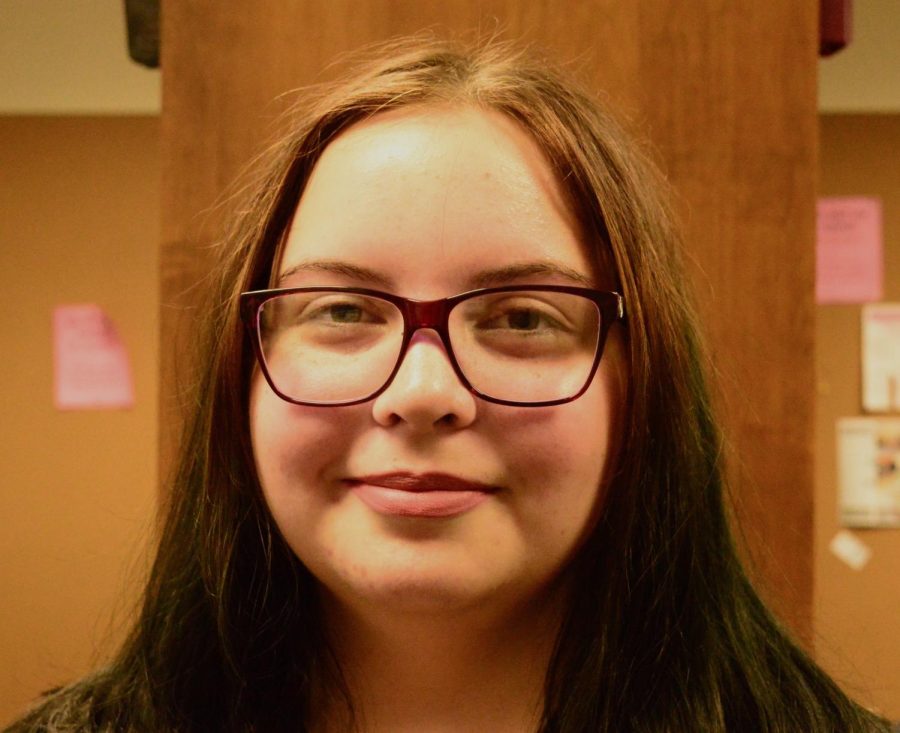Finding the light in darkness
May 3, 2017
Deanna Juan was a carefree child growing up. She lived with her parents and twin brother in a small town, happy and content.
When she was six or seven years old, she was sexually abused, but didn’t know what it meant. She didn’t know it wasn’t something every child experiences and that it shouldn’t happen.
“I was fine, didn’t realize anything was wrong or it was anything I should be ashamed of or what it was, honestly, until about seventh or eighth grade, when we learned (in health class) about … sexual abuse,” Juan said. “And I was like, wait a second, this happened to me.”
With the newfound knowledge of how abnormal her childhood experience was, the reality of the situation began to sink in.
“I kind of had it in my head that I was dirty, soiled, broken — like no one would ever love me,” she said.
Juan spiraled internally — “pretty hardcore,” she said.
Juan spent hours lying on her bed, staring at the ceiling. The blank ceiling stared back at her. She told her parents she was reading in her room. She struggled to push the nagging thoughts that she wasn’t virtuous, wasn’t worthy.
“I either slept too little, three hours a night, or (too much) … 14 hours a night,” she said.
Juan isolated herself from her family and friends. Both her parents worked full time and didn’t catch on to the struggle she was facing. She couldn’t even speak to the person who was her closest friend: her twin brother.
“I just remember sitting in my room one day thinking about how I was so different from everyone,” she said. “Like, ‘What’s wrong with me, I can never be fixed, I’m broken, my family will never be able to love me’ and things like that.”
The breaking point
To add to her own issues, Juan’s parents’ marriage began to dissolve during her early teens. She learned her father suffered from dementia — a condition that cost him his job and family. He was suicidal, too, she found out.
“I remember asking my mom, ‘I know dad was suicidal at some point — how did you feel about it?’” Juan said.
When her mother ranted about her father’s weaknesses for leaving his family, Juan took it personally.
“I automatically took that to mean me … (that) I was all these bad things,” she said. “And I kind of focused on all those negative feelings and perceptions.”
Juan felt unbearable stress. In eighth grade, Juan attempted suicide by taking sleeping pills. “In my head, I was saying goodbye to everyone.”
The will to live
“I woke up very disoriented and (obviously) unsuccessful,” she said. “Waking up from it was what kind of convinced me that, OK, that didn’t work, so let’s see what life is going to be like.”
Juan threw herself into school work and extracurricular activities. She achieved a high GPA and held leadership positions in several student organizations throughout high school.
Though still anxious and depressed on the inside, the activities she encountered on a daily basis gave her the purpose she needed.
“I started to think like, OK, maybe I am good at something, maybe I am not completely worthless,” Juan said. “That was a main thought in my head for a very long time because of what had happened to me.”
During her senior year of high school she was awarded scholarships that were enough incentive to pursue a post-secondary education.
A fresh start
Juan found a sense of belonging once she started school at Kent State. She’s now a senior majoring in psychology.
“Going to college really opened my eyes,” she said. “Realizing that other people had the same issues with anxiety … kind of created a support group for me.”
Juan finally found a place where she felt she could talk to somebody about her struggles. She took advantage of University Health Services and therapy sessions.
“There’s a lot of people who are willing to help you and provide information services … that I’ve never really thought about before coming to college,” Juan said.
She confided in a small group of friends her freshman year about her suicide attempt, something she hadn’t thought she would be able to do before going away to school.
Instead of feeling ashamed and facing rejection, Juan said she was met with support and understanding.
“One of the (people I told) looked at me and said, ‘You are the strongest person I know,’” Juan said. “And — I was already crying — but I just broke down even more … because that was the first time anyone had ever actually told me how strong I was.”
Today, Juan’s not completely free of suicidal thoughts.
“It’s still a struggle,” she said. “College didn’t help everything,” but she’s adopted a more positive outlook on life than she’s had in the past.
“I’ve already experienced probably one of the darkest, worst times of my life when I was younger,” she said. “But I still feel like I’m working my way up to where I want to be. I’m doing the best I can, and I feel like I’m pretty much almost there.”
“It’s a long process,” Juan said. “I’m still working through (my issues, but) I’m … happy with where I am right now.”
Alex Delaney-Gesing is the managing editor, contact her at [email protected].












